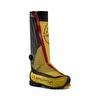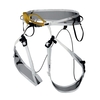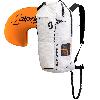The sustainable mobility challenge, from the cities to the Alps. By Simonetta Radice

 1 / 3
1 / 3 Simonetta Radice
Simonetta Radice
The latest Report about the State of the Alps published by the Alpine Convention dedicated to sustainable tourism stated that "after the energy sector, the transport sector is the second most important emitter of greenhouse gases in the European Union and when it comes to transport specific CO2 emission Kilometre per passenger, light duty vehicles are second to planes." Apart from this, the European Environment Agency estimates that up to the 80% of tourists travel to the Alps by car and from 1960 to 1994 car travel increased by 100%.
Although the Alps represent a heterogeneous system, the mobility challenges that the entire region has to face are quite similar: on the one hand the so-called "last mile accessibility" that guarantees a connection between stations in the valleys and the high altitude resorts, and on the other hand the possibility of individual routes by public transport within these destinations.
The railway network within the Alps is about 8400 km long, although a decrease in demand in the most remote areas has caused a cutback of entire routes, often replaced by buses. Since many people tend to prefer travelling in private cars, many public transport services are no more cost effective and are forced to further reduce their service: a vicious cycle that results in increasingly smaller number of passenger who use public transport. Accessibility on its own does not suffice to guarantee the success of a region if this is the only point of strength.
All this clearly points out the paradoxes of development in the Alpine area. How can one match such a fragile ecosystem with the needs of an increasingly demanding tourism on the one hand, and with the desires of a population that does not want to live on the margins? How can one safeguard the cultural peculiarity of each community, without shutting the doors to external contributions and influences? How can one both protect and manage, as a resource, the natural environment of the Alps?
There are numerous success stories: from the Swiss Travel System and its ability to reach the remotest villages thanks to the Postbus network to the free public transport network in the Chamonix valley and in the Tegernsee valley, or the TrekBus GiroParchi project by the Fondation Grand Paradis in the Gran Paradiso National Park.
I believe though that the answer to all our the questions about the present and the future of the Alps and their development lies rooted within the mountains, in something we tend to forget it: the limit. And what springs to mind are the words of Mariano Cattrini, mayor of Domodossola, expressed during a recent conference: "We must manage to live with the resources that our land is capable of giving us, otherwise sustainability cannot be real."
by Simonetta Radice



 Copia link
Copia link























